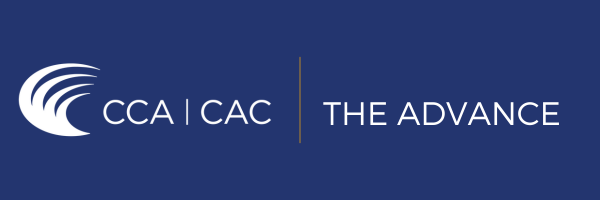
Welcome to The Advance, the newsletter of the CCA. If you haven’t subscribed yet, you can sign up here.
IN THIS EDITION:
- CCA names new president and CEO
- Tara McGee on the age of wildfire awareness
- Read the latest on Canada’s tech workforce, AI’s limits, Canada’s digital divide, and more
- Meet the expert panels for our two new assessments
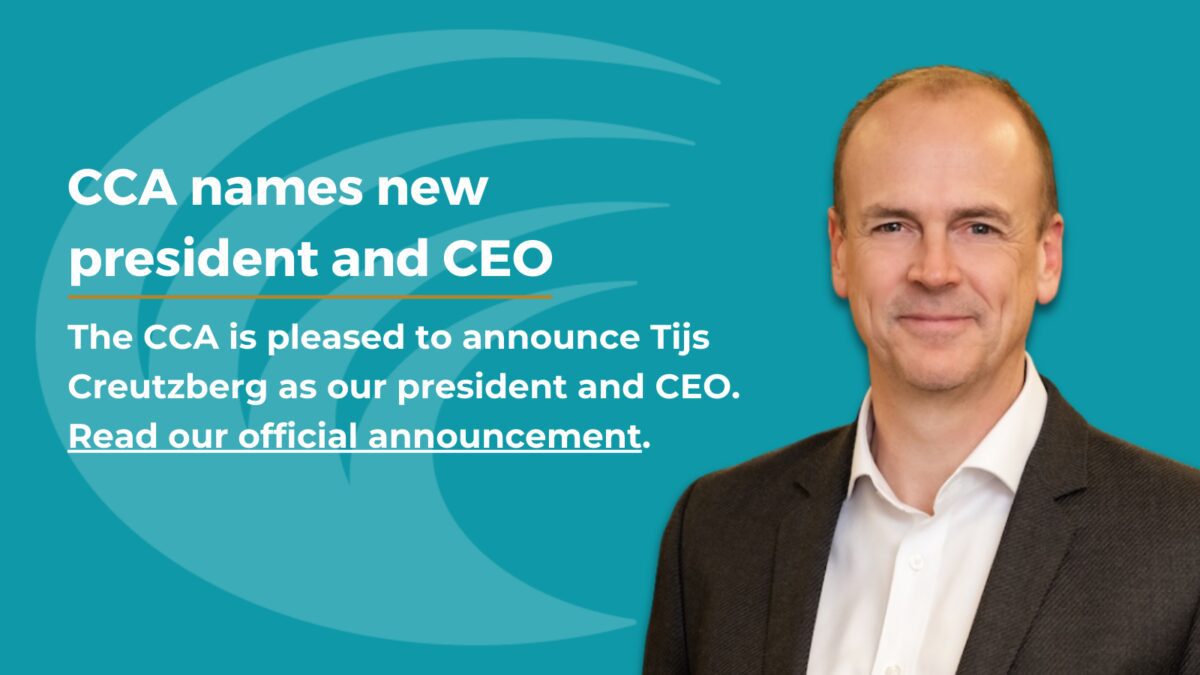
Tara McGee on the age of wildfire awareness
Two decades ago, Tara McGee attended a Canadian research conference focused on environmental hazards. When her fellow attendees asked about her work, McGee replied, “Wildfire.” Her response was met with a pause; at the time, McGee says, environmental hazard research focused primarily on flooding. One attendee told her, “We don’t really do wildfire research here in Canada.”
McGee, an environmental studies graduate from the University of Waterloo, developed her interest in environmental hazards after a chance encounter with Contaminated Communities, a book by environmental psychology expert Michael R. Edelstein. She followed her interest to the Australian National University, where her PhD research focused on community responses to lead contamination. One of her colleagues in Australia was a volunteer firefighter who asked McGee whether she had ever considered studying fire. McGee was intrigued.
When she returned to Canada in 2002, McGee began work on a study of fire risks at the wildland–urban interface in Edmonton, focusing on risk perception and mitigation measures. The next year, a lightning strike touched off the Okanagan Mountain Park Fire in Kelowna, British Columbia, destroying more than 200 homes and displacing tens of thousands of people. The devastating fire was one of 2,500 in the province that year.
As wildfires in Canada continue to make international headlines, McGee, a member of CCA’s Expert Panel on Disaster Resilience in a Changing Climate, spoke to the CCA about the age of wildfire awareness, interviewing evacuees, and the term “natural disaster.” McGee is currently a professor at the University of Alberta, where she is principal investigator of the First Nations Wildfire Evacuation Partnership and researches individual, community, and organizational responses to environmental hazards. Her comments have been edited for length and clarity.
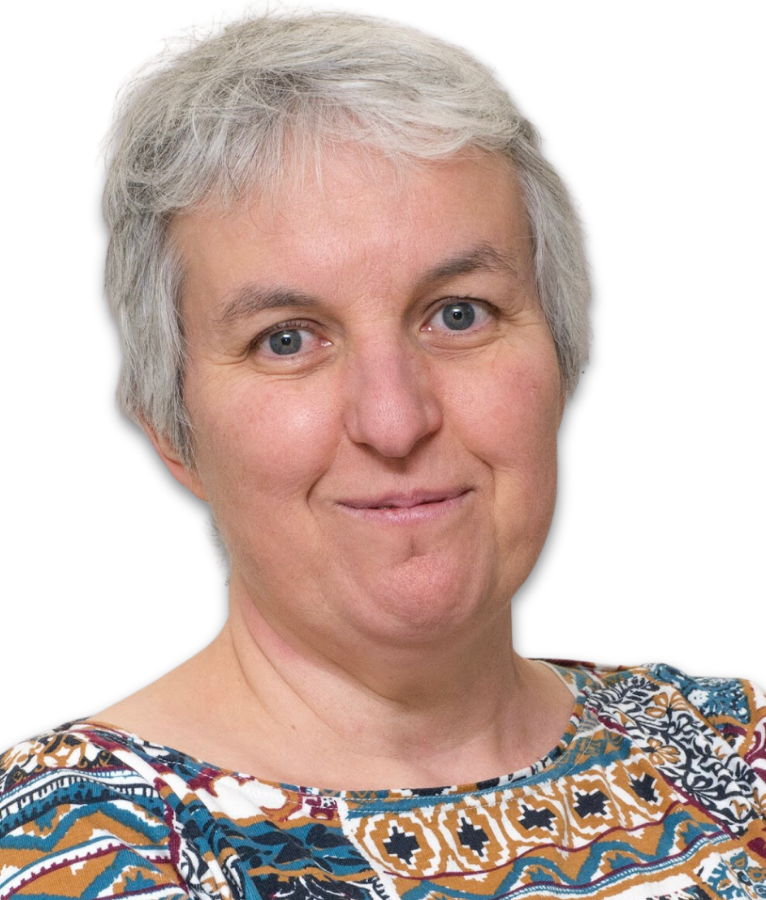
How has public awareness of wildfire risk evolved during your career?
When I returned to Canada, there was very limited public awareness of wildfires and their impacts on communities. But then we started to have significant wildfire events affecting communities like we saw in 2003 with the Okanagan Mountain Park fire.
Canada has gone through quite significant wildfire events—but they have tended to be a single community going through that experience. There might be some media coverage, but it’s not the whole country being exposed to wildfires or their impacts.
Now, it is very interesting to see the increase in awareness—from the research side of things, the news media, and the public—after last year’s devastating wildfires, evacuations, and wildfire smoke. Everyone in Canada is now aware of wildfires. Everyone has had some experience with wildfire, wildfire smoke, or evacuation, or knows people who’ve experienced these things.
Do you get many media inquiries about environmental hazards these days that aren’t wildfires?
It’s all about wildfires. And that’s fine. Most of my research career has focused on wildfires. I don’t think I’ve ever been approached about lead contamination.
Tell us about your work interviewing wildfire evacuees.
My focus has always been on listening to and learning from people’s experiences. In 2016, shortly after the Horse River fire started in Fort McMurray, I conducted an online survey of more than 400 evacuees, asking about their experiences with preparation and evacuating. People who completed the survey provided a lot of information. Evacuees often want to share their experience, and being able to do that can be helpful for them in terms of coping with it.
First Nations Wildfire Evacuations [by McGee, Amy Cardinal Christianson, and the First Nations Wildfire Evacuation Partnership] included interviews from 200 evacuees from seven First Nation community partners. The stages of evacuation were the same: that first sight or smell of smoke, informing community members, trying to arrange transportation and get people out, experiences within host communities, and going back home to deal with challenges in the recovery process.
Each community also had unique experiences during their evacuation. Those evacuation experiences hold useful insights for First Nation and Métis communities, for communities hosting evacuees, and for organizations and agencies supporting evacuees. We’ve received very positive feedback about the book, including from communities that haven’t gone through a wildfire evacuation but feel as though they might.
It’s been two years since CCA’s Expert Panel on Disaster Resilience in a Changing Climate published its report, Building a Resilient Canada. What stands out to you from that time?
My research focuses on the social sciences aspects of wildfires, but it interacts with other disciplines and fields. The opportunity to learn from people with different expertise and work together to produce something useful for a wide range of people was appealing.
We had a conversation about the use of the term “natural disaster,” which was interesting and memorable. You see that term used a lot in the media, and by some people in academia, policy-making and practitioners. A problem with the “natural disaster” term is that it diminishes the human aspects of hazards and disasters including the work that is needed to reduce risks. If you call a disaster “natural,” it’s sort of that “Mother Nature” idea. It has nothing to do with us. Well, actually, it has everything to do with us: where we choose to live, the ways that we reduce risks, the policies that are in place. There are always humans involved.
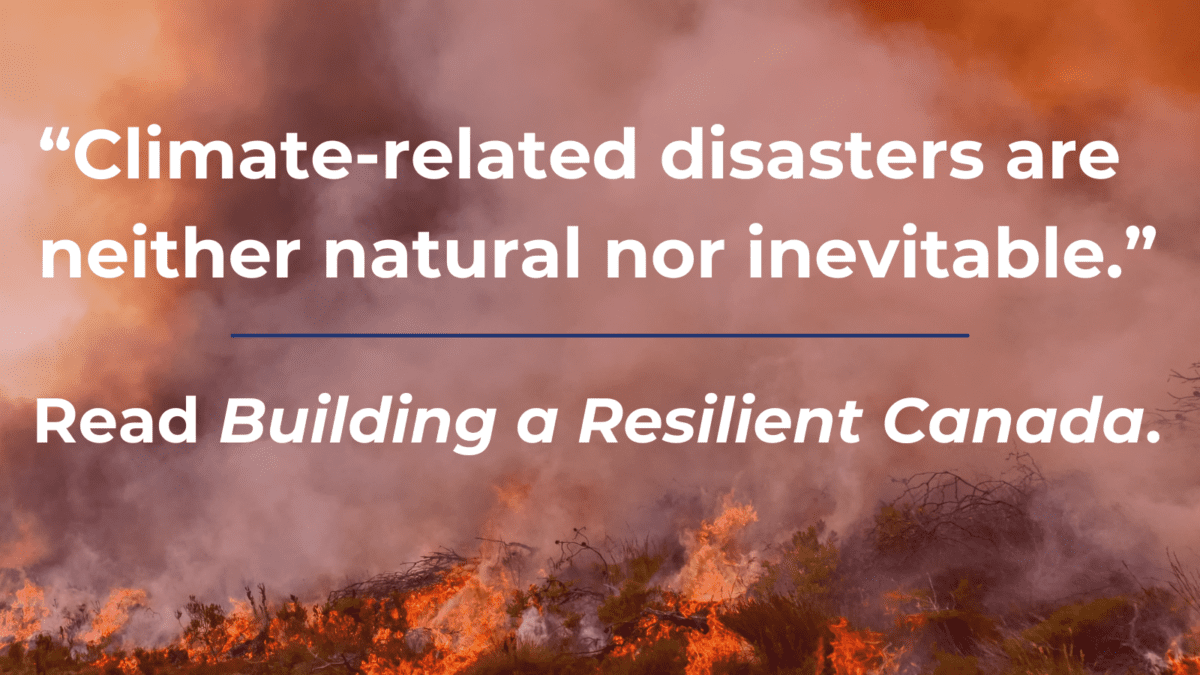
Readings
- “Canada prides itself in its superior social safety net,” writes the Institute for Research on Public Policy, in a new report on the country’s digital divide, “but still has not found a solution to addressing the affordability and adoption challenges of providing high-speed broadband internet access to low-income households and northern and Indigenous communities.” For more on equitable connectivity, read the CCA’s report, Waiting to Connect.
- In a pair of new reports, The Dais details the demographics of Canada’s tech workforce and how those workers are compensated. “The findings in these reports are a crucial step in understanding and addressing the challenges and opportunities within Canada’s tech sector, paving the way for a more inclusive and productive future,” Karim Bardeesy, The Dais’s executive director, writes.
- The Royal Society of Canada, the Royal Society Te Apārangi, and the Australian Academy of Science will co-host “Indigenous Engagement: A Research Summit on Cultural Heritage in an Era of Reconciliation” in Vancouver, BC, from November 4 to 6.
- As oceans drink in carbon, the Big Story devotes an episode to “the world of marine geoengineering—a field gaining a lot of attention, as well as a lot of investment, including in Canadian companies.”
- Writing in The Walrus, Navneet Alang considers artificial intelligence’s hype problem, and whether the power already granted to AI by its most vocal proponents exceeds the technology’s capabilities. “The problems facing Canada or the world…aren’t problems caused by a lack of intelligence or computing power,” he writes.
- “It’s the first sense we develop — our most direct contact with the world around us. And we lost so much of its benefits during the pandemic.” The UofTMed Magazine’s latest issue is devoted to touch, and draws on When Antibiotics Fail, CCA’s report on antimicrobial resistance.
CCA announces panelists for two new assessments

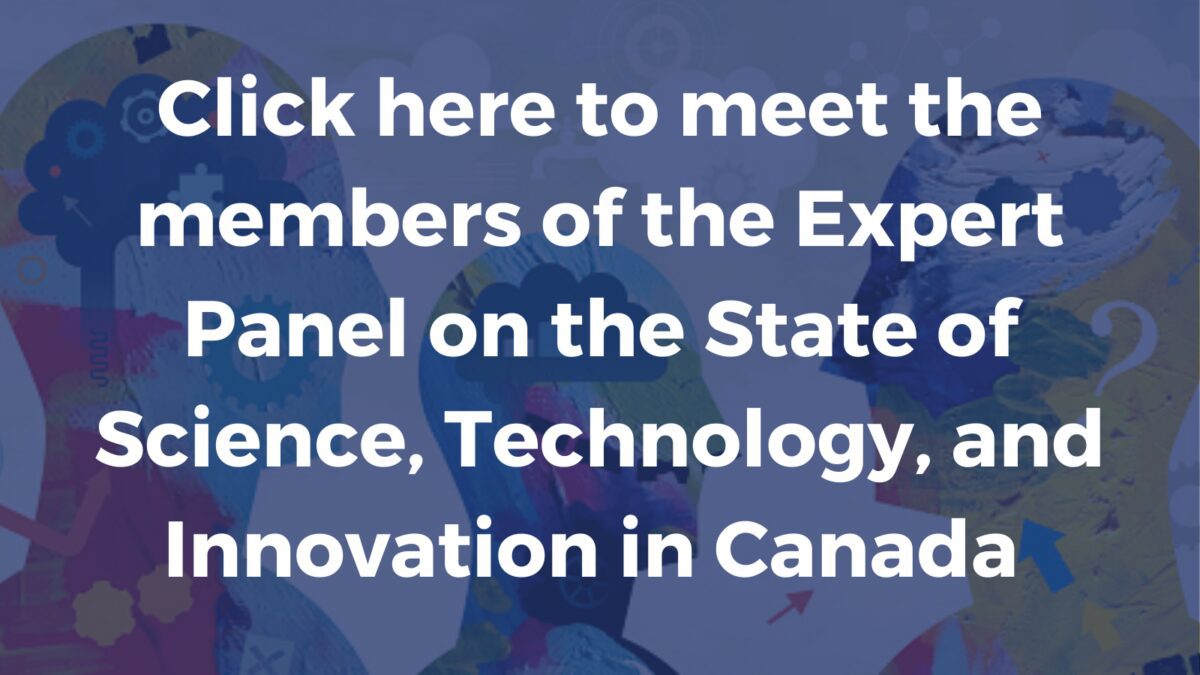
The post The Advance: July 2024 appeared first on CCA Reports.